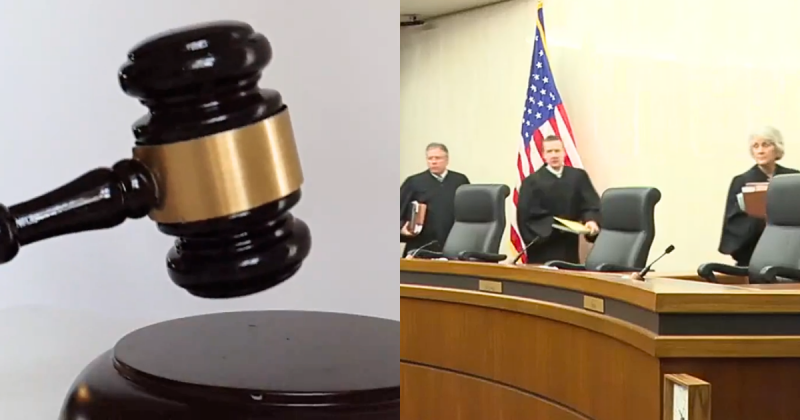North Dakota’s Supreme Court has reinstated the state’s near-total abortion prohibition, a move that critics say quietly reshapes reproductive rights across the state.
The ruling imposes felony charges on providers, punishable by up to five years in prison and fines of $10,000, while patients are explicitly exempt from criminal liability.
The statute originates from 2023 legislation signed by then-Governor Doug Burgum.
The law allows abortions only in cases of rape, incest or medical emergencies during the first six weeks of pregnancy.
Following the U.S. Supreme Court’s Dobbs decision overturning Roe v. Wade, North Dakota moved to aggressively restrict abortion access, prompting its only clinic, Red River Women’s Clinic, to relocate just across the state border into Minnesota, according to OANN.
The legal challenge centered on State District Judge Bruce Romanick’s earlier ruling, which declared the law “unconstitutionally vague.”
North Dakota’s constitution requires at least four of five justices to agree in order to invalidate legislation. In this case, only three justices sided with the lower court, leaving the ban in effect.
Justice Jerod Tufte, writing for the majority, rejected claims that the state constitution’s natural rights provision protects abortion access.
He stated that the law “provides adequate and fair warning to those attempting to comply,” countering arguments that physicians might face criminal exposure for providing care.
Pro-life officials celebrated the decision. Attorney General Drew Wrigley described the ruling as an affirmation of “important pro-life legislation, enacted by the people’s Legislature,” according to The Daily Caller.
State Sen. Janne Myrdal, sponsor of the 2023 bill, said she was “thrilled … that this is fully constitutional for the mother and for the unborn child.”
Critics expressed deep concern over the potential consequences for women’s health.
Meetra Mehdizadeh of the Center for Reproductive Rights described the law as “cruel and confusing,” saying it “forces doctors to choose between providing necessary care and facing criminal charges.”
She emphasized that “abortion is healthcare, and North Dakotans deserve access without delays or legal ambiguity.”
Nationally, North Dakota’s decision is part of a broader post-Dobbs trend. Thirteen states now enforce total abortion bans, most of them conservative-leaning.
Surveys from the Kaiser Family Foundation and PRRI indicate that residents of these states largely support stricter abortion laws, reflecting a growing divide in reproductive policy nationwide.
The state’s current restrictions also have deep historical roots.
Legal observers note that North Dakota’s abortion statutes have evolved over decades of pro-life advocacy, reflecting sustained anti-abortion activism and the state’s conservative political identity.
The 2023 legislation represents the culmination of this long-term effort to restrict abortion access, with legal and political battles shaping both the law and public debate.
Experts also caution about broader governance trends.
Although not directly tied to this case, research on outsourcing policy functions highlights potential risks when non-elected actors wield significant influence, underscoring the importance of accountability and transparency in lawmaking.
With this reinstatement, North Dakota joins a growing list of red states enforcing near-total abortion bans.
Observers across the country are monitoring the ruling closely, anticipating potential legal challenges, legislative actions, and its influence on future reproductive policy in other conservative states.
WATCH:

